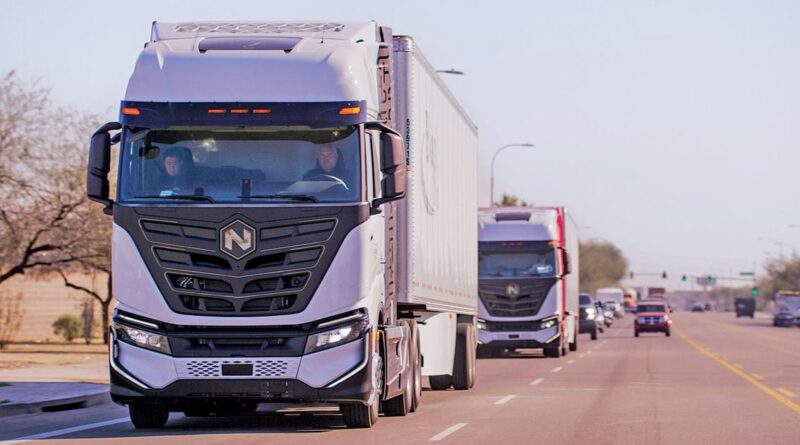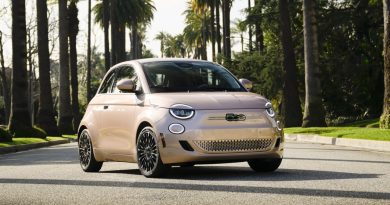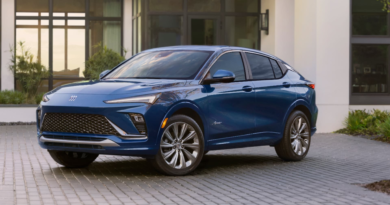EV startups are still low on cash, Q1 financials show
Once the darlings of automotive investors, electric vehicle startups are now limping along under the weight of a heavy cash burn, forcing companies to find new ways to stanch the bleeding.
Rivian Automotive Inc., Lucid Group Inc., Nikola Corp. and Faraday Future Intelligent Electric Inc. all had fewer months of cash on hand in the first quarter of this year than they did at the end of last year, according to an analysis of quarterly Securities and Exchange Commission filings released last week. Fisker has seen a boost of about four additional months of cash to cover expenses, while Lordstown Motors Corp. has about two months more cash than it did in the fourth quarter of 2022, but still issued a warning that it may have to file for bankruptcy.
Cash “really just means how long you can survive without a strategy pivot,” said Jeff Osborne, a senior analyst focused on the sustainability and mobility technology sectors at TD Cowen, an American investment bank owned by Canada’s Toronto-Dominion Bank.
Indeed, just last week, Fisker said it would move its flagship vehicle, the Ocean, “into a new market segment with few direct EV competitors at our price point,” and revealed a lower production forecast for the year. The company has nearly 24 months of available cash left and has delayed its second vehicle, the Pear. Fisker cited longer-than-expected homologation timing and supply chain limitations, in a quarterly financial performance call with investors.
Michael Lohscheller, CEO of Nikola, described a “new and refocused” company on a similar call last week. The zero-emission heavy-truck manufacturer paused production of its battery-electric vehicle to focus on its hydrogen truck. Nikola also said the company is selling its stake in a European joint venture to its partner, commercial vehicle manufacturer Iveco.
Nikola had roughly three months of cash on hand at the end of the first quarter.
“This will reduce Nikola’s cash spend and capital commitments and allow us to dedicate our resources to the task at hand in North America,” Lohscheller said on the call.
Lucid, with a little more than three months of cash to cover operating expenses, cut its production forecast from an estimate of 10,000 to 14,000 to “over 10,000.”
And Lordstown, which has about nine months of cash on hand, said in its first-quarter filing that it is in danger of having to file for bankruptcy.
The company is feuding with partner Foxconn, which owns about 19 percent of Lordstown, over funding support tied to the automaker’s share price.
“If we are unable to resolve our dispute with Foxconn in a timely manner on terms that allow us to continue operating as planned, identify other sources of substantial funding, identify a strategic partner and resolve our significant contingent liabilities, we may need to further curtail or cease operations and seek protection by filing a voluntary petition for relief under the United States Bankruptcy Code,” Lordstown said.
The automaker also is running into issues producing its Endurance electric pickup.
“Due to the production delays from early January to mid-April 2023, the failure to identify a strategic partner for the Endurance, and extremely limited ability to raise capital in the current market environment, we anticipate production of the Endurance will cease in the near future,” the company said.
Faraday Future saw its cash troubles continue to grow in the first quarter. The company has about one month of cash left compared with a little more than three months’ worth at the end of last year, according to a Thursday, May 11, SEC filing.
Other startups facing cash woes include Canoo, which had about two months of cash on hand at the end of 2022, and Workhorse Group, which had over a year’s worth. Both are scheduled to report results Monday, May 15.
Many EV startups arose out of a pandemic-era base flush with cash provided by investors eager to bet on the next Tesla. However, the companies have since been dogged by high costs, an oft-speculated recession spooking investors and for some, government probes and lawsuits.
EV startups must also contend with another force — falling vehicle prices. Tesla slashed prices multiple times this year to generate sales, though it then raised prices this month.CEO Elon Musk said on an April call with investors that the company is ready to toggle prices based on supply and demand.
Ford cut prices for its Mustang Mach-E by up to 7 percent this month.
Manufacturers are coming down from a pandemic-induced high for demand and prices. According to Osborne, price declines constitute a “major difference” in 2023.
“Mature OEM price cuts put pressure on startups as they ramp up,” he said.
Source : Autonews.com




